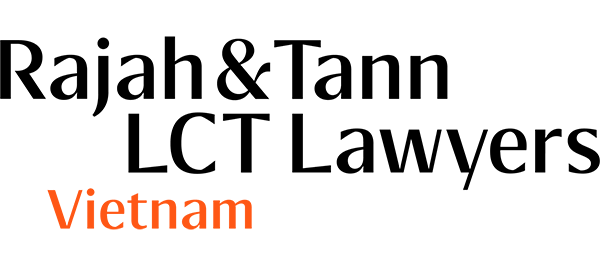Decree on Personal Data Protection Issued
On 7 March 2023, the Government issued Resolution No. 27/NQ-CP to approve certain key contents of the draft decree on personal data protection (“PDP Decree“). The PDP Decree was issued on 17 April 2023, and it will come into effect from 1 July 2023.
The PDP Decree represents the first consolidated data protection regulation in Vietnam, and introduces significant changes to the existing (fragmented) regulatory environment for data protection in the country. Many of the provisions and concepts introduced by the PDP Decree were influenced by the European General Data Protection Regulation (GDPR).
The PDP Decree will have extraterritorial application. It regulates both Vietnamese and foreign agencies, organisations and individuals. For the latter, foreign agencies, organisations or individuals that directly participate in or otherwise involved in processing personal data in Vietnam will be regulated by the PDP Decree.
The PDP Decree regulates personal data as information in the form of symbols, letters, numbers, images, sounds or the like on an electronic medium that is associated with a particular person, or helps to identify a particular person. Similar to data protection laws of other jurisdictions, the PDP Decree now categorises personal data into basic personal data and sensitive personal data.
Processing of sensitive personal data attracts additional regulatory obligations. For example, prior to processing, it would require data subjects to be informed that the data being processed comprises sensitive personal data.
Key provisions of the PDP Decree relate to, among others:
- the rights for data subjects;
- general bases for processing personal data;
- consent requirements;
- notification prior to processing personal data;
- breach notification requirements;
- impact assessment for processing personal data;
- cross-border transfer of personal data;
- data protection officer and data protection department.
For more information, click here to read our Legal Update.
Effectiveness of Law on Anti-Money Laundering No. 14/2022/QH15
On 1 March 2023, the Law on Anti-Money Laundering No. 14/2022/QH15 (“AML Law“), which was passed on 15 November 2022, came into effect. The recommendations from the Financial Action Task Force (FATF) drove much of the changes introduced by the AML Law.
The AML Law expands the list of reporting subjects that are required to comply with the Know-Your-Customer (“KYC“) requirements, including identify verification and transaction reporting. It now includes payment intermediary service providers and certain categories of securities companies. The AML Law also includes revisions to the scope of customers for which KYC must be conducted, as well as KYC information.
The AML Law requires reporting subjects to develop procedures for managing money laundering risks, including customer classification by risk levels, and risk management methods in response to such customer risk levels.
The AML Law also enables reporting subjects to collect information from national databases and undertake KYC procedures through “third parties”. These third parties would need to meet certain operational conditions.
Establishment of Vietnam Competition Commission
On 10 February 2023, by Decree 03/2023/ND-CP, the Government established the long-awaited Vietnam Competition Commission (“VCC“). This comes nearly five years after the Law on Competition No. 23/2018/QH14 was passed, which envisaged the establishment of this body.
VCC is an agency under the Ministry of Industry and Trade. It will be primarily responsible for, among others, overseeing economic concentrations (merger filings), handling competition proceedings, and handling and settling competition cases.
The establishment of VCC is a major milestone towards the Government’s efforts to enforce competition laws. To date, the absence of VCC has resulted in very limited enforcement actions being taken against competition law violations.
Decree 03/2023/ND-CP came into effect from 1 April 2023.
Singapore and Vietnam Sign MOUs to Enhance Economic Cooperation
On 9 February 2023, Singapore and Vietnam signed two Memoranda of Understanding (“MOUs“) to deepen economic ties between the two countries.
Green-Digital Economic Partnership
The MOU on the Green-Digital Economic Partnership is a broad framework which seeks to promote collaboration in the green and digital economy between Singapore and Vietnam. The MOU builds on four earlier MOUs between Singapore and Vietnam on digital economy, energy, carbon credits and innovation that were signed in 2022. It aims to strengthen their economic ties through collaboration in the following areas:
- Energy connectivity;
- Sustainability;
- Infrastructure;
- Digital and innovation; and
- Connectivity, including in education, finance, information technology and telecommunications, tourism, trade and services, and transport.
Economic and Trade Cooperation Workplan
The MOU on the Economic and Trade Cooperation Workplan is an implementation MOU that builds on the MOU on Economic and Trade Cooperation that was signed in February 2022. As an implementation MOU, it sets outs activities and goals for 2023 to improve the bilateral economic and trade cooperation of the two countries, including:
- Encouraging collaboration in the digital economy;
- Enhancing agri-trade cooperation through business matching; and
- Facilitating Singapore investment in the agriculture and logistics sectors in Vietnam.
For the energy and industrial sectors, the MOU will enhance cooperation in these sectors through (i) the development of projects in renewable energy, electricity, liquified natural gas, and low-carbon solutions, and (ii) enhancing collaboration in capacity building.
Enactment of Law on Medical Examination and Treatment No. 15/2023/QH15
On 9 January 2023, the National Assembly passed the Law on Medical Examination and Treatment No. 15/2023/QH15, replacing the existing 2009 law on the same subject. The new law introduces certain significant changes to the provision of healthcare services, including the following:
- The new law now explicitly requires the Vietnamese language to be used in medical examinations and treatments, save that foreign medical practitioners can use a foreign language in limited circumstances (e.g. providing services to other foreigners). This would impact the long-standing (and prevalent) practice of foreign medical practitioners providing services to Vietnamese individuals with the use of interpreters.
- The new law also introduces general provisions on telemedicine conducted between medical practitioners and patients or between medical establishments. It envisages, however, that the Government will pass further detailed regulations on the provision of such telemedicine services in the future.
Most provisions of the law will come into effect from 1 January 2024. However, there are grandfather provisions that apply for certain key changes (e.g. the language requirement above).
Feed-in-tariffs for Transitional Solar and Wind Energy Projects
On 7 January 2023, the Ministry of Industry and Trade issued Decision No. 21/QD-BCT (“Decision 21“) to set the feed-in-tariffs (“FiTs“) for transitional solar and wind projects under Circular 15/2022/TT-BCT.
In particular, the FiT rates in Decision 21 apply to certain projects that were unable to achieve the cut-off commercial operation date, i.e. 31 December 2020 for solar and 31 October 2021 for wind, thus becoming ineligible to enjoy FiT rates according to the Government’s renewable energy policies at the time. Under Decision 21, the following FiTs apply:
- Ground-mounted solar: 1,184.9 VND/kWh (4.94 US cents/kWh)
- Floating solar: 1,508.27 VND/kWh (6.28 US cents/kWh)
- Onshore wind: 1,587.12 VND/kWh (6.61 US cents/kWh)
- Offshore wind: 1,815.95 VND/kWh (7.57 US cents/kWh)
Please note that whilst the information in this Update is correct to the best of our knowledge and belief at the time of writing, it is only intended to provide a general guide to the subject matter and should not be treated as a substitute for specific professional advice











